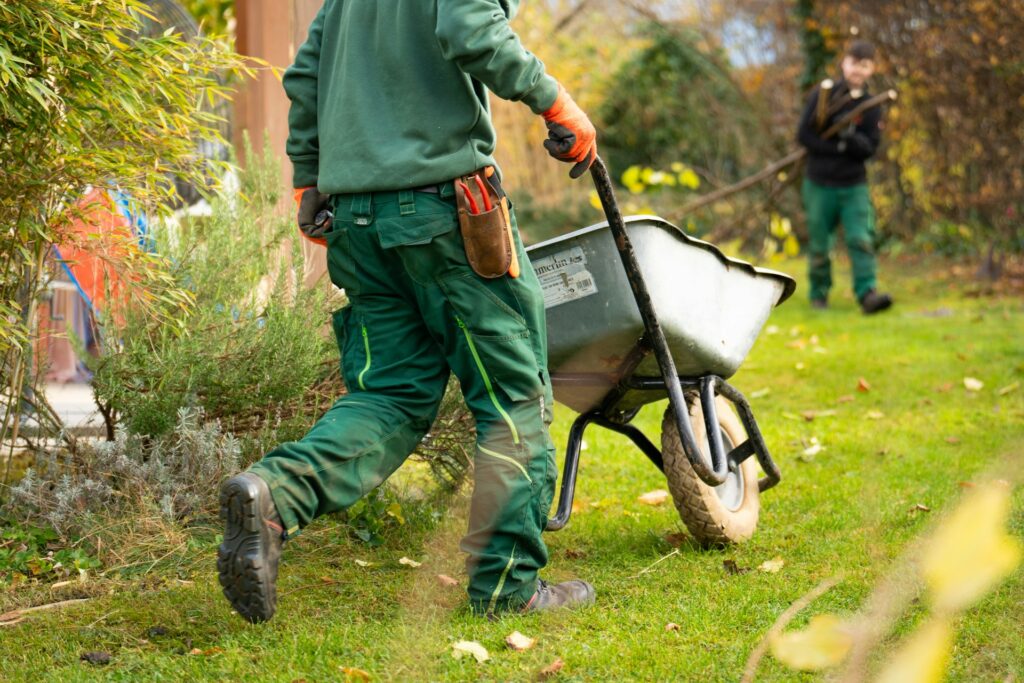Landscape material storage might not be the first thing homeowners in Everett think about when planning an outdoor project, but it plays a big part in keeping things running smoothly. Whether you’re working with mulch, gravel, topsoil, or bark, having these materials stored the right way can make future work faster, cleaner, and less expensive. Without proper storage, moisture, pests, and clutter can quickly turn even the best materials into waste. For homeowners trying to maintain landscaping through Everett’s rainy seasons and dry summer months, smart storage isn’t extra—it’s practical.
Getting a handle on where and how to store landscape materials makes day-to-day lawn and garden work easier. No one wants to open a bin to find moldy mulch or discover that an uncovered pile of soil has turned into mud. There are ways to avoid those situations and keep everything organized, dry, and ready to use. It all starts with knowing which materials you’re using, how much you’ll need, and choosing the right space to store them.
Assessing Your Storage Needs
Many homeowners in Everett use a wide range of landscaping materials throughout the year. With changing seasons, regular rain, and the warm summer months, different materials are needed depending on the timing and type of project.
Here are some common materials used in Everett:
– Bark mulch for moisture retention
– Crushed rock or gravel for paths or drainage
– Topsoil for raised beds or lawn improvements
– Compost for nutrient cycling
– Sand for leveling or paver base
Before jumping into a storage plan, it helps to figure out exactly which materials you’re handling and in what quantities. If mulch is reordered every few weeks during summer, or topsoil is bought in bulk just once a year, the storage setup needs to reflect that. Stacking bags on a patio may work short term, but longer-term solutions are necessary if you’re buying in bulk or working on recurring projects.
Ask yourself these questions:
1. Do I usually purchase materials in large quantities?
2. Are these materials used regularly or stored for upcoming projects?
3. Do I have a covered or dry space that can keep things safe from Everett’s weather?
A common example is homeowners who enjoy gardening and often buy compost and soil in spring, then store leftover material for fall planting. If that leftover pile isn’t covered or placed on a moisture-resistant base, you could end up with soggy, unusable soil. Planning helps reduce that waste and keeps materials ready for when you need them.
Selecting The Right Storage Solutions
Once you understand what’s being stored, the next step is putting those materials somewhere that keeps them safe and out of the way. Not all materials need the same type of storage, and the layout of your yard or garage can limit some of your options. That’s why picking the right setup for each type of landscape material makes a difference.
Here are common storage options with their strengths and limitations:
1. Covered outdoor bins
– Great for materials like bark or crushed rock
– Keep materials protected from rain and wind
– Needs enough space and proper drainage
2. Storage sheds or lean-tos
– Provide full weather protection
– Good for sensitive materials like fertilizer, compost, or bagged soil
– Space inside should be organized to avoid clutter
3. Tarp-covered piles
– Work for short-term use and large deliveries like gravel or topsoil
– Require careful securing to stop water build-up or blowing off
4. Plastic containers or barrels
– Ideal for smaller quantities or specialty materials
– Easy to move and stack
– Should be labeled clearly to avoid confusion
When choosing a storage method, think about material type and how often it’s used. Bulk gravel doesn’t need the same level of protection as bagged compost or peat moss. Also, don’t store heavy items directly on the ground where they stay wet. Raised pallets or pads keep materials from absorbing ground moisture.
Selecting the right storage now can save hours later when you’re loading a wheelbarrow or cleaning up after a rainstorm. A well-chosen solution keeps your materials in better condition and your landscaping projects right on track.
Implementing Effective Storage Practices
Once materials are sorted and stored in their ideal spaces, daily use becomes much easier. But without a clear system, even the best setup can fall apart. That’s where a few storage practices really help. Small steps can protect your investment and prevent unnecessary waste, especially with the type of weather Everett deals with.
Start with structure. Separating materials into categories—like soil blends, aggregates, and organic matter—reduces confusion and stops accidental mixing. It also helps when you need to grab something fast instead of digging through unlabeled piles or bins.
Label every container or bin clearly. Use waterproof tags or paint to mark the contents and track how long it’s been there. Some materials, like compost or mulch, can change in quality over time. Knowing when a material was stored helps you decide when it’s time to use it or refresh the pile.
Try to keep storage areas off direct soil. Raised pallets under bags or containers prevent moisture from seeping in from the ground. For loose materials like gravel or bark, plastic liners or concrete slabs work well as a base.
To keep the system working:
– Rotate older materials to the top or front so they’re used first
– Check for signs of mildew, clumping, or pests every couple of weeks
– Use breathable but protective covers during dry spells or heavy rain
– Tighten lids or seal bags when not in use to discourage mice or insects
– Keep a simple log of what materials you store and how much remains
Everett’s rainy climate is tough on outdoor storage. Left unprotected, even a few days of heavy moisture can degrade the material. A local homeowner who stored uncovered bark mulch on a gravel patch learned that lesson after an unexpected rainstorm turned it into soggy clumps that had to be tossed. Preventing that means using the right tools and sticking to the plan.
Maintenance And Safety Considerations
Storage isn’t just about cleanliness and organization—it’s about long-term care and safety. When heavy materials like crushed rock or damp soil are involved, poorly maintained storage areas can lead to injuries or damage to property. Taking regular steps to maintain the space helps keep both people and materials safe.
Start by walking through your storage zones monthly. Look for spills, signs of rodents, or loose coverings that could blow away in a storm. Make sure paths are clear, bins are securely closed, and nothing is stacked unsafely. Don’t assume short-term piles will take care of themselves. If small issues are ignored, that’s when pests settle in or mold starts growing.
Moisture management is another key point. In Everett, even outdoor areas under cover can become damp from humidity or sideways rain. Make sure there’s enough drainage under and around the storage spot. If water is collecting at the base of bins or in tarp dips, adjust the slope or lay down crushed rock to allow runoff.
When lifting bags or using wheelbarrows around these areas, keep safety in mind. Heavy bags should be stored waist-high whenever possible, not stacked above head height or below the knees. Use proper gloves and check that your tools are dry and easy to reach.
Watch for other risks too:
– Avoid storing flammable materials near fertilizer or wood-based products
– Keep sharp tools or accessories separated from frequently used items
– Use rat-proof containers for compost or anything organic
With regular upkeep and an eye on safety, stored landscape materials last longer and work better when it’s time to use them.
Keeping Your Landscape Materials Organized For Easy Access
It takes upfront effort to put a system in place, but that decision pays off year-round. Well-stored landscape materials in Everett stay in good shape, are easier to transport, and are ready when the next project starts. Whether it’s patching a garden bed, adding new gravel to a walkway, or refreshing mulch in a flower border, an organized storage system lets you get back to work without delays.
Order and access go hand in hand. When you can find what you need without digging through piles or replacing ruined goods, outdoor projects stay on track. You’ll also avoid spending more money than needed by reusing what’s already on hand.
Keep it simple. Store what you use, check what’s still in good condition, and get rid of what’s gone bad. Clear labels, clean spaces, and consistent checks make it easier to work quickly and safely no matter the season. A smart layout also helps when new materials are delivered, giving you an easy place to unload with less risk of mixing or ruining what’s already in storage.
With Everett’s weather in mind, the smartest approach is one that stays flexible while protecting your materials from the elements. From bagged soil to loose gravel or mulch piles, proper storage saves time, cuts waste, and supports smoother landscaping work all year long.
Working with organized storage systems makes outdoor projects smoother and waste less likely, and Northwest Landscape Supply is here to help you overcome common storage challenges. Properly stored landscape materials in Everett help ensure your supplies stay dry, accessible, and ready for use all season long. For a quick estimate or to book a service visit, please contact us today.

